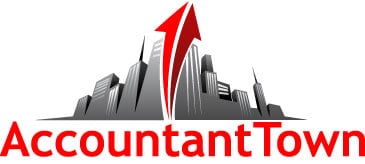Accounting Principles – Accruals and Closing Entries
Accruals are necessary in accounting if true financial condition and correct operations are to be shown. Some concerns run their books and prepare their statements entirely in accordance with the cash transactions.
Operations are controlled by the receipt and disbursement of cash. Thus we hear of books kept and statements prepared on a cash basis. Scarcely anything could be further from the truth in so far as condition and operations are concerned. Some business men will insist that they are not sure of any profits until they have them in cash. With some, cash seems to be a mania. They refuse to recognize the fact that their financial condition is the matter of importance and that financial condition is represented by both assets and liabilities. They refuse to recognize the fact that cash is only one of the items which make up the assets. The man who contends that he has nothing except that he has it in cash cannot, it seems, consistently admit that he owes anything, yet there is never very much difficulty in drawing out this admission. Time is the medium which measures the majority of business transactions, and it is the relation of these transactions to the time which has elapsed, or is to elapse, that must be taken into consideration in scientific accounting. Most accounts seem to have certain loose ends which must be gathered up before the books can be closed. To do this consistently the accountant or bookkeeper should go through the accounts one by one, scrutinizing and studying each carefully, in order to determine whether there is anything about it which requires treatment in order that it shall show true condition and correct operations. Taking up the items in the order that they will usually appear in the ledger, they may require treatment in closing as follows:
Land may have increased in value and it may be desired by the proprietor that it be shown at the increased value in the books. There is, of course, a natural objection on the part of the accountant to writing up land and taking the increment into profits. Conservatism dictates that wherever it is necessary or desirable to increase the figure at which land is carried that the increase shall be offset by a reserve. This will, of course, call for an entry charging land and crediting reserve for appreciation of land.
Buildings will be subject to depreciation, which, in closing the books, must be taken into consideration. The same statement will apply with equal force to equipment, furniture and fixtures, horses, wagons and harness, motor trucks, etc. The depreciation may be handled in one of two ways: either by writing down the asset through a charge to profit and loss and a credit to the asset, or making the charge to profit and loss, or an account called provision for depreciation, and crediting a reserve for depreciation. The latter method is to be preferred, since it leaves the asset account unaffected by depreciation and permits it to show bona fide additions and deductions, while the value of the asset is correctly shown on the balance sheet through the offset in the form of a reserve.
Investments may fluctuate in value and, consequently, it may be desirable to adjust their book value in closing. The rule regarding investments is that they shall be shown at cost. In the case of securities the rule has usually been to show them at cost if cost is lower than the market, but if cost is higher than the market to reduce them to the market. It is not thought advisable to adjust the account in the books to keep pace with fluctuations in market values, but the effect is secured by raising the proper reserves. Not alone securities, but any investments which fluctuate in value, may be adjusted by means of reserves. If the investment has increased in value, an entry may be made charging the asset account and crediting a reserve for appreciation of investments. If the investment has decreased, profit and loss may be charged and a reserve credited, which may be called reserve for depreciation of investments.
Materials and supplies, goods in process and finished goods may all require adjustment at closing time. The remarks applicable to investments will apply equally well to materials and supplies. No one can object to their being carried at cost, because of the fact that it is intended that they shall be used in the product and not sold. Hence the market value can have little effect upon them. There would be no more excuse for writing down materials and supplies than for writing them up. They are written down in accordance with the theory that the market has fallen and they could be produced now at a lower figure than formerly. It would seem to make little difference whether the excess of cost over market were written down to profit and loss or whether it were charged into the product at cost. On the other hand, it would seem absurd to take a fictitious profit on them and charge them into the cost at a higher rate if the market had risen. The point at issue seems to be entirely one of whether they are to be valued at what they would bring in the market or at what they are worth for manufacturing purposes. Ultra-conservatism requires that they shall be carried at cost when cost is below the market, but carried at the market when the market is below cost. It would seem that if it is desirable to take cognizance of the relation of cost to the market price that this might be accomplished through the medium of reserves for balance sheet purpose, rather than upsetting the costs at which the materials and supplies are to be charged into the product.
Goods in process may have included in them in certain instances manufacturing and general overhead. Here again it may be necessary to resort to reserves for the purpose of proper valuation in the balance sheet, without disturbing the function of control which is the essential of these accounts. Stationery, printing and postage will likely require adjustment in closing, unless arrangement has been made to carry both asset and expense accounts for these various items. Even so, it will frequently be the custom to defer the charge of these items to expense accounts until just before closing the books.
The accounts representing the current assets will very generally call for adjustment before closing. Cash is the usual exception to this rule, but even it may require adjustment on account of interest on bank balances and similar items. Accounts receivable will need to be scrutinized so as to determine whether or not there are among them any accounts which are bad or doubtful. These should be provided for through the medium of reserves rather than written off. Some accounts may carry interest, which should be accrued before closing. Notes receivable are of the same character and must receive attention with regard to the interest which has accrued on them.
Special and miscellaneous assets, like sinking funds, etc., may require adjustment, and accounts like good-will, insurance and advertising paid in advance may need to be written off or provided for. Consignments may also have to be taken care of if consignments have not been carried on the general books. Accounts sales should be made up and the proper entries made on the books, usually charging the cost of sales and crediting accounts payable in favor of consignors.
With regard to the accounts for liabilities, the interest on any bonds outstanding should be accrued, as should also taxes, wages and the interest on accounts and notes payable. If there are any deferred credits to income they should be examined in order to determine if any proportion may appropriately be taken into the earnings of the period.
In a similar manner the nominal accounts should be gone through, giving attention to any sales made in the period not yet booked; also any returns or sales allowances pending settlement. Attention should likewise be given to purchases and purchase returns and allowance. Inventories should be applied and the proper cost of purchases applicable to manufacturing or sales should be determined; salaries of superintendent, office salaries and expenses of the factory accrued, in the case of a manufacturing concern, and the true cost of goods sold ascertained by means of the inventories, unless the direct method of ascertaining the cost is in vogue. The accounts for salaries of salesmen, traveling expenses of salesmen, commissions and advertising should be carefully gone into for accruals and adjustments affecting the expenses. Salaries and expenses of the general office should likewise be treated.
After the proper entries have been made in the accounts the nominal accounts may be closed direct to profit and loss, or they may first be closed into the respective group accounts, which in turn will be closed into profit and loss. This is what is meant in reality by closing the books. Although the making of the accruals and the preparation of the balance sheet and statement of income and profit and loss from the trial balance before closing has come to be referred to technically by the same expression, it makw little difference practically in the preparation of the statement of income whether or not the nominal accounts have actually been closed. If they have been, it will be necessary to analyze the profit and loss account, or, in other words, pick the items out of said account. Whereas, if the nominal accounts have not actually been closed out, the statement may be prepared from the trial balance or direct from the accounts. It is usually easier to prepare the statement if the nominal accounts have not been closed out. Where the accounts have been scientifically arranged the preparation of the statements is greatly facilitated, since the items will appear in the statements in practically the same order that the accounts appear in the books.
Access the contact form and send us your feedback, questions, etc. We are always welcome to help someone out. You can also contact us if you wish to submit your writing, cartoons, jokes, etc. and we will consider posting them to share with the world! The Facebook and LinkedIn groups are also good areas to find people interested in accounting like yourself, don’t hesitate to join as everyone of all levels are welcome to become part of the community.

